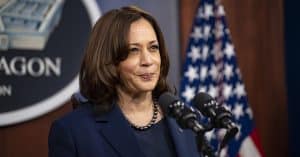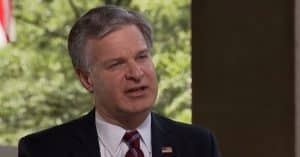Former Clinton Staffer Arrested, Charged With Spying
In a startling revelation, a former U.S. ambassador to Bolivia and National Security Council member, Victor Manuel Rocha, admitted to being a covert agent for Cuba.
In federal court, Rocha pleaded guilty to charges of espionage for Cuba, marking a significant breach of U.S. national security over four decades.
Rocha, once a trusted member of the U.S. government, was charged with espionage activities on behalf of communist Cuba. His clandestine operations involved gathering intelligence and influencing U.S. foreign policy, a betrayal that spanned over 40 years. Attorney General Merrick B. Garland highlighted the gravity of Rocha's actions, noting them as one of the most significant infiltrations by a foreign agent in U.S. history, as Fox News reports.
Rocha's journey into espionage began in 1980, soon after becoming a naturalized U.S. citizen. Born in Colombia, Rocha sought and secured positions within the U.S. government that allowed him access to sensitive, non-public information critical to national security and foreign policy.
A Four-Decade Espionage Odyssey Unravels
Throughout his career, Rocha exploited his roles within the U.S. Department of State and later as an advisor to the Commander of the U.S. Southern Command. From these positions, he provided classified information to Cuba's General Directorate of Intelligence, significantly impacting U.S. operations and diplomatic strategies.
His covert activities were meticulously concealed, involving false statements to the U.S. government, clandestine meetings with Cuban operatives abroad, and the illegal acquisition of travel documents. Rocha's dedication to his role as a Cuban agent was so profound that he praised Fidel Castro, referred to the U.S. as the "enemy," and described his espionage as "a grand slam" during admission to an undercover FBI agent.
The public disclosure of Rocha's double life in 2012 marked the end of his espionage activities, leading to charges including acting as an agent of a foreign government without proper notification and the use of a passport obtained by false statement. His willingness to plead guilty to two charges in exchange for the dismissal of more than a dozen other charges highlights the complexity and sensitivity of his case.
The Betrayal of Trust and National Security
Garland's statements reflect the depth of betrayal felt by the U.S. government. To serve a foreign power clandestinely while holding positions of trust within the U.S. government is seen as an egregious violation of the oath of loyalty to the United States. This case underscores the persistent threat of foreign espionage and the importance of vigilance within national security protocols.
Rocha's actions, as outlined by the attorney general, not only breached the trust placed in government officials but also compromised the integrity of U.S. foreign policy. His long tenure as a Cuban agent serves as a stark reminder of the potential for foreign infiltration and the need for stringent security measures.
The case of Victor Manuel Rocha is a sobering example of espionage within the highest levels of the U.S. government. Over four decades, Rocha worked against the interests of the United States, leveraging his positions to provide Cuba with classified information that could significantly alter the course of U.S. foreign policy and national security measures.
A Legacy of Espionage and a Call for Vigilance
The revelation of Rocha's activities has prompted a reevaluation of security protocols within the U.S. government. His ability to operate undetected for such an extended period raises questions about the effectiveness of current counterintelligence efforts and the need for ongoing assessments of personnel security measures.
Rocha's admission and subsequent guilty plea serve as a cautionary tale for national security agencies. The praise he lavished on Fidel Castro and his description of his espionage activities as a victory underscores the ideological motivations that can drive individuals to betray their countries.
The prosecution of Rocha sends a clear message about the U.S. government's stance on espionage and the severe consequences for those who engage in such activities. It highlights the Justice Department's commitment to identifying and prosecuting individuals who betray their oath of loyalty to the United States for foreign adversaries.
Justice Served in a Historic Espionage Case
In conclusion, Victor Manuel Rocha's case is a significant moment in U.S. legal and espionage history. His actions, spanning over four decades, represent one of the most prolonged and impactful infiltrations of the U.S. government by a foreign agent. Attorney General Merrick B. Garland's remarks underscore the severity of Rocha's betrayal and the importance of maintaining vigilance against espionage.
Rocha's espionage activities, beginning in 1980 and ending with his public exposure in 2012, compromised U.S. national security and foreign policy. His guilty plea to two charges, in exchange for the dismissal of additional charges closes a chapter on a complex case of espionage that has undoubtedly left an indelible mark on U.S. history.
This case serves as a reminder of the persistent threats faced by national security and the importance of protecting sensitive information from foreign adversaries. The U.S. government's response to Rocha's actions reflects a commitment to upholding the integrity of its institutions and the trust placed in them by the public.




